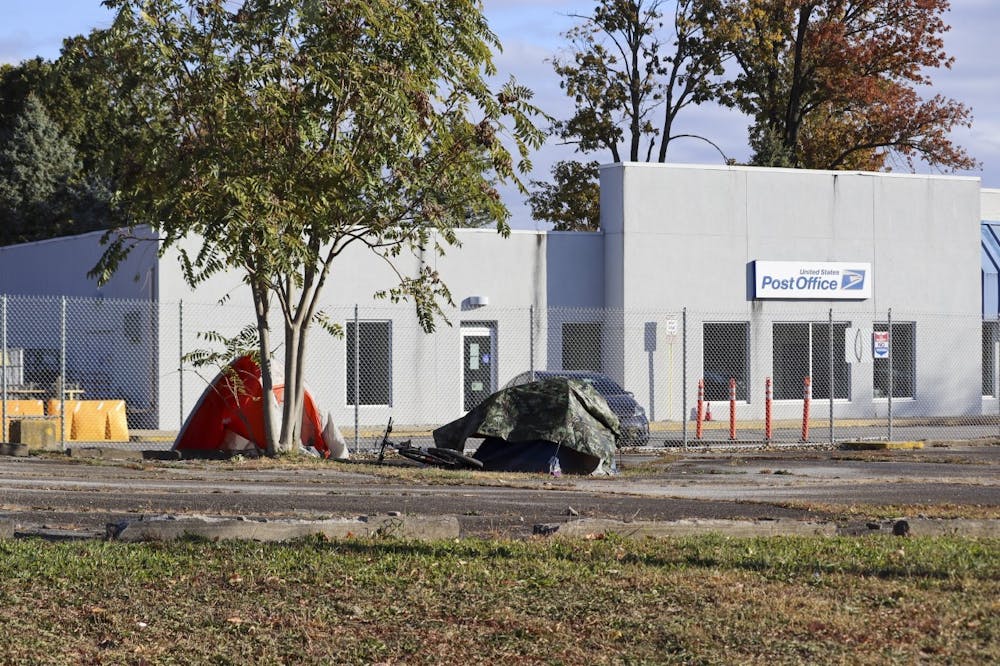Jordan Neely was a man who, for all intents and purposes, was at about as low of a point as one could be.
He had developed severe mental health issues after his mother was murdered by his step-father when he was 14, after which he bounced around the foster care system.
At the age of 16, Neely began a life as a Michael Jackson impersonator, a role he continued for several years to come, even amid his struggles with homelessness, incarceration and worsening mental illness.
On May 1, during an episode in which a now 30-year-old Neely began yelling on a New York City subway about how he was hungry and thirsty, a passenger felt the need to take the situation into their own hands and, with a 15-minute chokehold, killed him.
Neely’s life was a dramatic tragedy that came to a violent end because he had committed the crime of making people uncomfortable with his existence as a homeless person. He had reminded people that, beneath the red leather jacket and moonwalking, he too was a human being with real-life problems that too many would prefer to forget about. And, for some, this was a justifiable enough reason to end his life.
[Related: OPINION: Hostile architecture leaves us all in the cold]
Neely’s story may be distinctive in that it was so widely publicized, but make no mistake — he is nowhere near the first or only person to die while experiencing homelessness. According to data compiled by Homeless Death Counts, over 7,800 unhoused people died in 2020. The same year, according to the same data, Bloomington saw the death of 42 unhoused individuals.
For a city that professes to “protect the rights of all its residents,” that is an awful lot of unjust deaths.
Any death of an individual experiencing homelessness is inherently unjust. Scratch that — let’s take it a step further: the very concept of homelessness is, in itself, unjust. There is absolutely no reason that, in the richest country in the world, anybody should be devoid of their basic physiological needs of food, water or shelter.
The material conditions that lead to homelessness are, no doubt, complicated. According to the National Law Center on Homelessness & Poverty, citing the U.S. Conference of Mayors, some of the leading causes of homelessness include a lack of affordable housing, unemployment, mental illness, low wages and substance abuse. Simply put, there’s not a single, tangible thing that causes people to become homeless.
But the solution to homelessness doesn’t need to be so complicated. It is a government’s moral duty to both care and provide for the governed. Homelessness is a policy choice, but there’s no reason it has to be that way. What we need are an array of publicly-funded social programs that help everyone, not just our most vulnerable.
This includes ready access to free mental and physical healthcare, a federal job guarantee, ensuring the right of everyone to receive a quality and free higher education, and, yes, providing those who are unhoused with a stable living situation. But this is only on the federal level — what local governments choose to do in response to this crisis can be just as important.
In no surprise to anyone, housing is a key issue this year in Bloomington’s mayoral election. Kerry Thomson, who, after winning the Democratic primary, is presumed to be taking office in January, outlines a couple of ways she plans to help the unhoused community in her website’s platform. This includes creating affordable housing and developing plans to ensure the public safety of those experiencing homelessness.
The homelessness crisis has afflicted Bloomington for many years, and the city has a history of doing little more than pushing it out of sight. What Bloomington needs, and what local governments across the country need, are steps that can ensure the safe and humane relocation of unhoused individuals into secure homes that can help begin their process of treatment and financial rebuilding.
[Related: FAQs about health care for people experiencing homelessness]
This can be things like allocating city-owned land to public housing endeavors, converting underutilized buildings into housing, ensuring strong eviction protections, rent control policies and equitable access to public restrooms and wash stations for those currently on the streets. Local governments alone may not be able to solve the crisis, but taking these steps would certainly be a good start.
Long before he died on the F train, the system failed Jordan Neely. The system has failed every unhoused person who has died in Bloomington. The system has failed every person who ever experiences homelessness. I don’t know about you, but it’s starting to sound like the system needs to be rebuilt.
Joey Sills (he/him) is a junior studying journalism and political science.



